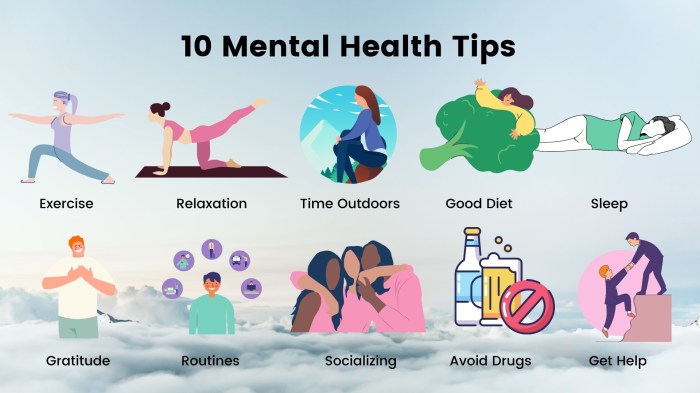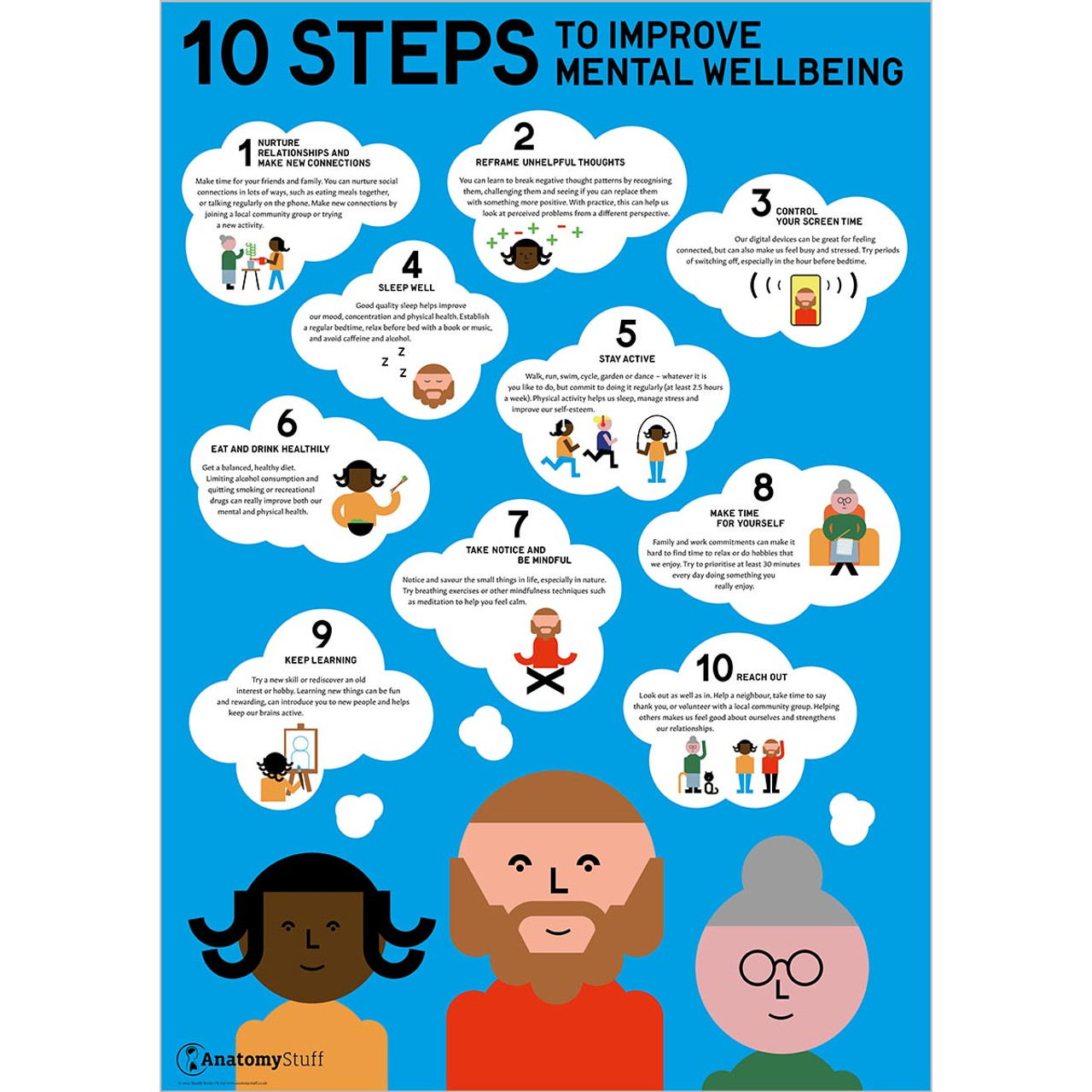Mental Wellness Tips sets the stage for this enthralling narrative, offering readers a glimpse into a story that is rich in detail with an American high school hip style and brimming with originality from the outset.
Get ready to dive into the world of mental wellness and discover strategies for improving your well-being like never before.
Importance of Mental Wellness: Mental Wellness Tips
Mental wellness is crucial for overall well-being as it encompasses our emotional, psychological, and social well-being. It affects how we think, feel, and act, playing a key role in how we handle stress, relate to others, and make choices in our daily lives.
Impact on Daily Life and Productivity
Maintaining good mental wellness can significantly impact our daily life and productivity. When we are mentally well, we are better equipped to cope with the challenges and stresses of life. It can enhance our focus, concentration, and decision-making abilities, ultimately leading to increased productivity and efficiency in our work and personal endeavors.
Relationship between Mental Wellness and Physical Health
There is a strong relationship between mental wellness and physical health. Poor mental health can negatively affect our physical health, leading to a higher risk of developing chronic conditions such as heart disease, obesity, and diabetes. On the other hand, taking care of our mental well-being can improve our physical health, as stress and anxiety levels decrease, boosting our immune system and overall health.
Strategies for Improving Mental Wellness

Managing stress effectively is crucial for maintaining mental wellness. Finding healthy ways to cope with stress, such as exercise, deep breathing techniques, or talking to a trusted friend or therapist, can help reduce its impact on mental health.
Tips for Managing Stress Effectively
- Practice relaxation techniques such as deep breathing, meditation, or yoga.
- Engage in regular physical activity to release endorphins and reduce stress.
- Set boundaries and learn to say no to tasks or commitments that cause excessive stress.
- Seek social support from friends, family, or a therapist to talk about your feelings.
Benefits of Mindfulness and Meditation Practices
- Mindfulness and meditation practices can help increase self-awareness and reduce negative thought patterns.
- These practices can improve focus, reduce anxiety, and promote emotional well-being.
- Regular meditation can help lower stress levels and improve overall mental health.
Techniques for Promoting Better Sleep Habits
- Establish a regular sleep schedule by going to bed and waking up at the same time every day.
- Create a relaxing bedtime routine, such as reading a book or taking a warm bath, to signal to your body that it’s time to sleep.
- Avoid screens and stimulating activities before bed to promote better sleep quality.
- Ensure your sleep environment is comfortable, dark, and quiet to optimize restful sleep.
Building Resilience and Coping Mechanisms
Building resilience is crucial for navigating life’s challenges and setbacks. It involves developing the mental strength to adapt and bounce back when faced with adversity. Here are some strategies to help you build resilience and healthy coping mechanisms:
Developing a Support System
- Build strong relationships with friends, family, or a support group to lean on during tough times.
- Seek guidance and advice from trusted individuals who can provide emotional support.
- Engage in activities that promote social connection and a sense of belonging.
Practicing Self-Care, Mental Wellness Tips
- Take care of your physical health through regular exercise, proper nutrition, and adequate sleep.
- Engage in activities that bring you joy and relaxation, such as hobbies or mindfulness practices.
- Set boundaries to protect your mental and emotional well-being.
Developing Problem-Solving Skills
- Identify the root causes of your stressors and work on finding practical solutions.
- Break down challenges into manageable steps to avoid feeling overwhelmed.
- Learn from past experiences and use them to develop effective coping strategies for the future.
Seeking Professional Help
- Do not hesitate to reach out to mental health professionals when needed.
- Therapists and counselors can provide valuable support and guidance in developing coping skills.
- Medication or therapy may be necessary for managing severe mental health conditions.
Creating a Supportive Environment

Creating a supportive and positive environment is crucial for maintaining good mental well-being. It involves surrounding yourself with understanding and caring individuals who can offer encouragement and help when needed.
Ways to Create a Supportive Environment
- Acknowledge and validate feelings: Encourage open communication and create a safe space for sharing emotions without judgment.
- Offer support: Be there for others in times of need, listen actively, and provide assistance when possible.
- Promote positivity: Foster an atmosphere of optimism and encouragement, focusing on strengths rather than weaknesses.
- Set boundaries: Respect personal boundaries and encourage others to do the same to maintain healthy relationships.
Impact of Social Support on Mental Wellness
Social support plays a significant role in mental wellness by reducing stress, enhancing self-esteem, and providing a sense of belonging. Having a strong support system can improve overall well-being and resilience in facing life’s challenges.
